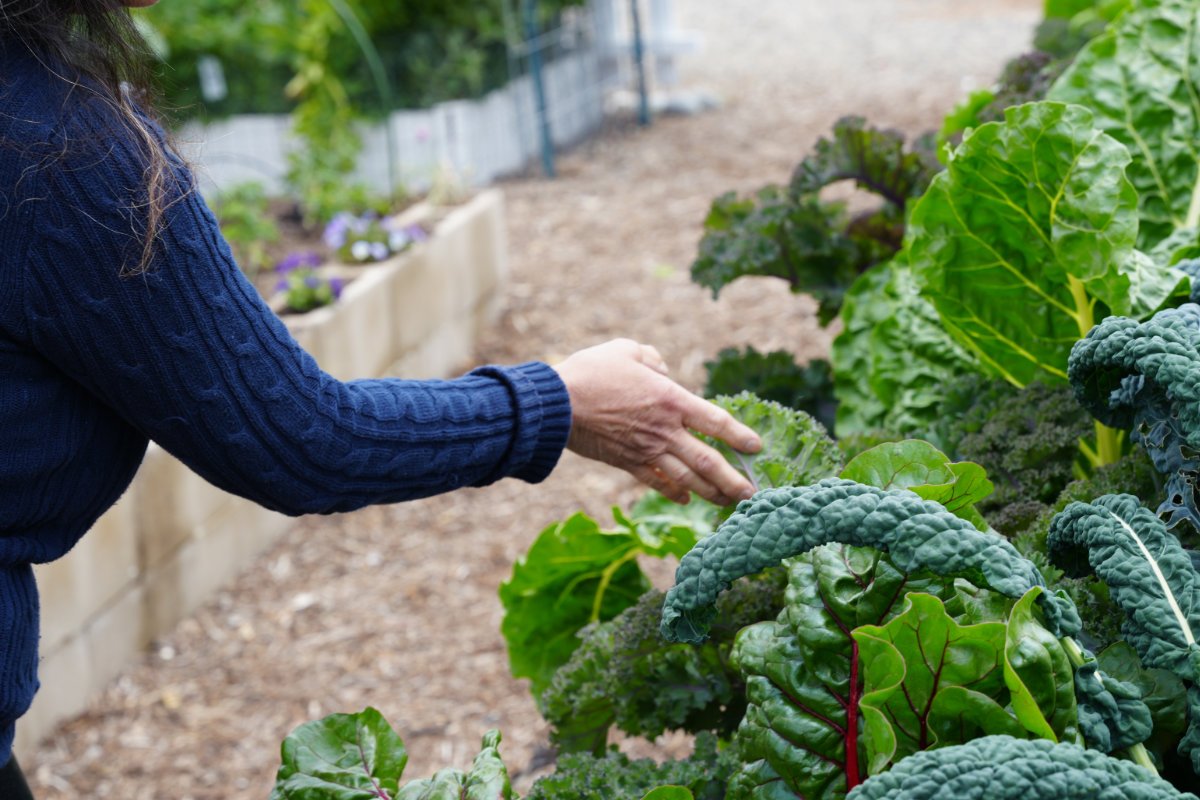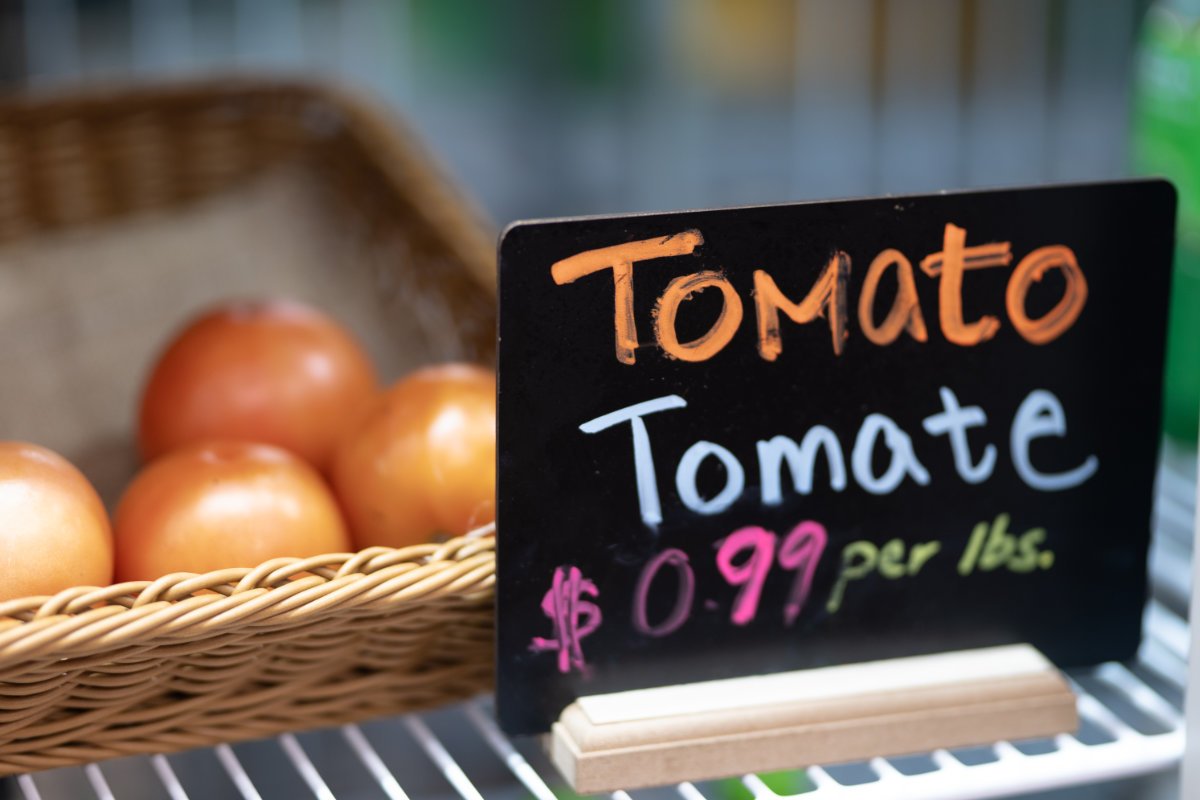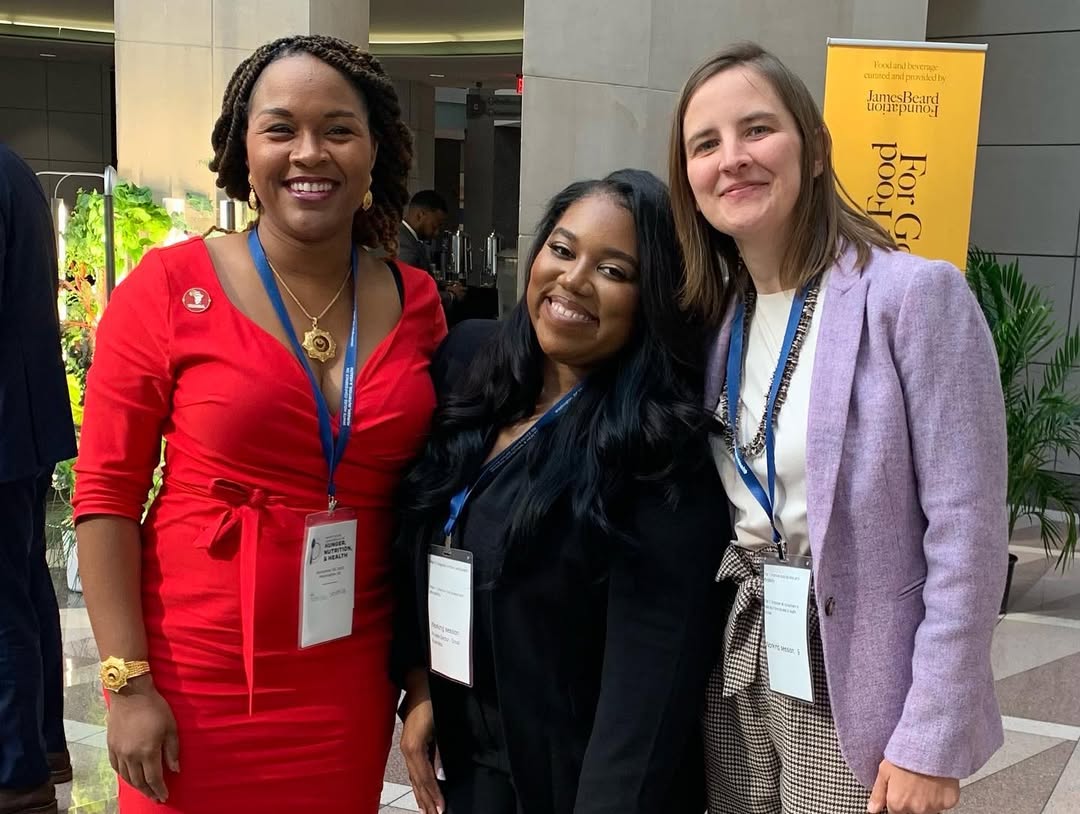Immigrant farmers, food workers, and vendors are a critical part of our food system. Here’s how to help them here in LA and nationwide.

Immigrant farmers, food workers, and vendors are a critical part of our food system. Here’s how to help them here in LA and nationwide.
July 22, 2025

A farmer examines a bed of chard and kale at an LA Food Policy Council workshop in Irvine, California. (Photo credit: LA Food Policy Council)
As a kid, I used to cringe when my mom would pull the car over on the side of the freeway. She’d spot something growing wild in the hills around Los Angeles and jump out of the car, searching for flor de izote, a white flower that’s part of everyday cooking in El Salvador, our home country. When she found some, my mom would take it home and cook it with huevos estrellados con tomate (fried eggs with tomatoes) or stir it into a cheese filling for pupusa.
Expand your understanding of food systems as a Civil Eats member. Enjoy unlimited access to our groundbreaking reporting, engage with experts, and connect with a community of changemakers.
Already a member?
Login
As I grew older, I came to realize that this was my mother’s ingenious way of connecting to home, even as we were putting down roots in a new land. In this way, we built a life here, away from a dangerous civil war in our home country.
I grew up cooking alongside my family, and I saw firsthand how assimilation was wrecking our health. Not only were we lacking access to our customary nutritious foods, but everyone was working hard, too, up to 16 hours a day, which left little time for meals beyond fast food.
I went away from home for college, and one day, I got a terrible call: My dad had suffered a heart attack. I knew that stress and poor eating habits had finally taken a toll. I decided then to work to change the broken food system that had failed my family.
As executive director of the Los Angeles Food Policy Council, an anti-hunger advocacy organization, I am heartbroken to see the Trump administration’s efforts to destroy this kind of work, uprooting people and food systems along the way. Our food system should nourish people, with dignity, care, and justice. That means everyone. Immigrant families, food workers, and small vendors are not threats; they are essential to our communities.

Immigrants comprise two-thirds of Los Angeles’s food service workers, and nearly 80 percent of the industry’s workers are Latino. (Photo credit: LA Food Policy Council)
Empty Markets, Corner Stores, and Farm Fields
Immigrants play a vital role across the entire food system—from agriculture, food processing plants, distribution, and the service industries. They make up the labor force that produces, sells, delivers, and prepares our food.
In Ventura County, a major agricultural area north of Los Angeles, about 60 percent of the 255,000 agricultural workers are undocumented immigrants, underscoring how vital their labor is to local farming. As a result of the recent immigration raids there, the city of Oxnard reported worker absenteeism as high as 70 percent, resulting in unharvested strawberry crops and projected losses exceeding $100,000 per week per farm.
“These days, I find myself trying to explain to my little ones why families like ours are being torn apart. Why innocent, hard-working people are being pulled into vans by masked men without explanation or due process.”
The historic L.A. 7th Street produce market, which supplies the region’s restaurants and small grocers with fresh fruits and vegetables, has seen empty stalls and slow business, because workers and buyers aren’t coming.
Corner stores in South Central LA are quietly losing their regulars, too; people are afraid to shop, work, or even be seen.
I recently visited a small market in the Pico Union neighborhood, where a vendor I’ve known for years stood behind a table full of produce that would likely go unsold.
“No viene nadie,” she said—no one is coming—as she described what this major setback would mean for the financial wellbeing of her family business. They’ve since pivoted to offer delivery service for their regular customers.
In Los Angeles County, immigrants make up 66 percent of food service workers, and 79 percent are Latino. Without them, many restaurants, catering businesses, and institutions would struggle to function.
In neighborhoods where immigrant-run food enterprises thrive—like MacArthur Park, Boyle Heights, and South L.A.—recent ICE raids devastated business: at a central fresh-produce market, daily sales plunged from $2,000 to $300, an 85 percent drop in revenue as vendors and customers stayed away in fear.
Safety Nets Disappearing
All of this is happening while our safety nets are being stripped away. SNAP, called CalFresh here in California, has long been a lifeline for families trying to get by. Last year, nearly 5 million Californians relied on it to put food on the table. The average benefit was just $189 a month, while the cost of groceries for a family with children is often over $1,200.
This budget was a struggle for many households, even before prices started rising. Now, under the Trump administration’s latest policies, fewer people will qualify for CalFresh, and many immigrants are too afraid to even apply. I’ve heard from families who’ve stopped showing up to the food pantry because they’re worried their names will end up on a list. The people who grow and cook our food are quietly skipping meals so their children can eat.
It’s a painful irony: Immigrant workers who fuel this economy, who bring in billions of dollars through farming, restaurants, and food businesses, are going hungry. But these policies don’t just punish individuals; they also weaken the entire structure of our food system, from labor to access to dignity. When we push people deeper into fear and poverty, we all feel the ripple effects.
These days, I find myself trying to explain to my little ones why families like ours are being torn apart. Why innocent, hard-working people are being pulled into vans by masked men without explanation or due process. Why people are afraid to shop for groceries. Why they’re afraid to walk to school or go to work.
In South Central, where my tía lives, her neighbor, Rosa, works as a cook for a taco street vendor in the Piñata District. A single mother of a 1-year-old boy, she usually brings him to work. Her boss recently told her it’s too risky for her to come in. Rosa’s $110 daily income vanished, but rent didn’t, and her food needs didn’t.
The Republicans’ “Big, Beautiful Bill,” passed earlier this month by the slimmest of margins, will only make things worse. We’ll see more of Trump’s agents of chaos on our streets, tearing families apart, driving workers into hiding, and dismantling the systems that keep people fed.
How Citizens Can Help
These systems, built up over decades, are falling apart when they are needed most. The cost of living continues to rise, but under the current administration, programs like SNAP are under threat, along with funding for programs that help keep nutritious food on people’s plates.
In our organization, we’ve pivoted our Farm Fresh LA program, and we are quietly working with trusted community groups to deliver locally grown produce to families who are too afraid to show up in public.
It’s a daunting task, sneaking food to people in this powerful country of plenty.
But we are undeterred. And we are not alone. In fact, there is much that can be done. Citizens can help by buying from farmers’ markets that source locally and equitably; supporting CSAs (community supported agriculture programs) run by worker-led farms; purchasing from local small markets and family-owned restaurants; and choosing produce from farms that treat their workers with dignity.
These are not just economic choices. These are small acts of solidarity, and they add up.
Beyond that, we all need to create coalitions and movements with long-lasting impact. In 2017, for example, our organization led a successful campaign to mandate that all farmers’ markets accept EBT (the debit cards for CalFresh benefits). It was a big step toward making fresh, local food more accessible to low-income families, and it’s the kind of work that we need even more of now.
We need to strengthen networks, too, tying together community-based organizations with deep, trusted relationships in immigrant communities. Trusted organizations have been on the ground every day, providing food delivery, wage recovery support, legal navigation, and culturally rooted care to families who have been abandoned by the system. We must support and connect the work of organizations who offer legal, housing, and food help—including food delivery.
I now look back on my mother’s search for the flor de izote not with embarrassment, but with pride. As a mother myself and a citizen of this country, I recognize the hard work she put in as we built a new life. Immigrant communities in Los Angeles have always made a way out of no way. We root ourselves in the cracks—and we bloom.
But we shouldn’t have to do it alone, and we shouldn’t have to do it in fear. With care, collaboration, and compassion—even now, against these powerful forces—we can create a food system and a community that helps everyone thrive.

July 30, 2025
From Oklahoma to D.C., a food activist works to ensure that communities can protect their food systems and their future.
Leave a Comment